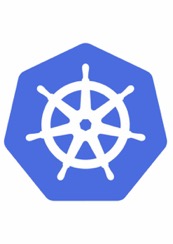Deploying Virtual kubernetes Cluster

Deploying Virtual kubernetes Cluster
Why Virtual Kubernetes Clusters?
- Cost Efficient: much cheaper than “real” clusters (single pod and shared resources just like for namespaces)
- Fast Provisioning: can be created and cleaned up again in seconds (great for CI/CD or testing)
- Cluster Scoped Resources: more powerful than simple namespaces (virtual clusters allow users to use CRDs etc.)
- Cluster Wide Permissions: allow users to install apps which require cluster-wide permissions while being limited to actually just one namespace within the host cluster
- Strict isolation: complete separate Kubernetes control plane and access point for each vcluster while still being able to share certain services of the underlying host cluster
- Great for Testing: allow you to test different Kubernetes versions inside a single host cluster which may have a different version than the virtual clusters
For Details refer the official documentation
Deploying the virtual cluster
Make sure you have access to existing cluster , this can be any real cluster or even rancher desktop / KIND.
I am using RKE cluster with 4 nodes , deployed on AWS.
1
2
3
4
5
6
$ kubectl get node
NAME STATUS ROLES AGE VERSION
ip-172-31-70-152.ec2.internal Ready <none> 114d v1.21.5+rke2r2
ip-172-31-75-72.ec2.internal Ready <none> 114d v1.21.5+rke2r2
ip-172-31-77-33.ec2.internal Ready control-plane,etcd,master 114d v1.21.5+rke2r2
ip-172-31-78-97.ec2.internal Ready <none> 114d v1.21.5+rke2r2
Since I want to access my VCluster from my laptop, I want to use the routable IP to be kube-api server , so I will use my existing clusters control planes public IP and create vcluster-values.yaml that way I can access my vcluster api server using the same public IP but with different port
I kept the the cluster version same as my existing cluster, however thats not the hard requirement.
1
2
3
4
5
6
7
8
9
10
11
storage:
size: 5Gi
syncer:
image: loftsh/vcluster:0.5.3
extraArgs:
- --tls-san=18.215.199.234
- --out-kube-config-server=https://18.215.199.234
vcluster:
image: rancher/k3s:v1.21.5-k3s2
service:
type: NodePort
Create the namespace in your existing cluster to hold our new vcluster ( so that we can segregate the resources )
1
$ kubectl create ns vcluster-kubeflow
And now Create the Vcluster
1
2
3
4
$ vcluster create vcluster-kubeflow -n vcluster-kubeflow -f vcluster-values.yaml
[info] execute command: helm upgrade vcluster-kubeflow vcluster --repo https://charts.loft.sh --version 0.5.3 --kubeconfig /var/folders/jl/yjcdl565151f6zn_4mrndfsc0000gn/T/2906172558 --namespace vcluster-kubeflow --install --repository-config='' --values /var/folders/jl/yjcdl565151f6zn_4mrndfsc0000gn/T/3483749369 --values vcluster-values.yaml
[done] √ Successfully created virtual cluster vcluster-kubeflow in namespace vcluster-kubeflow. Use 'vcluster connect vcluster-kubeflow --namespace vcluster-kubeflow' to access the virtual cluster
Take a note of the Port of the NodePort for the service, e.g. below is 32218
1
2
3
$ kubectl get svc -n vcluster-kubeflow vcluster-kubeflow
NAME TYPE CLUSTER-IP EXTERNAL-IP PORT(S) AGE
vcluster-kubeflow NodePort 10.43.49.113 <none> 443:32218/TCP 22m
And retrieve the kubeconfig change the Port with the value got before
1
2
$ vcluster connect vcluster-kubeflow -n vcluster-kubeflow --server=https://18.215.199.234:32266
[done] √ Virtual cluster kube config written to: ./kubeconfig.yaml. You can access the cluster via `kubectl --kubeconfig ./kubeconfig.yaml get namespaces`
Now using this kubeconfig file I can use this cluster as any normal cluster
1
2
3
$ kubectl get no --kubeconfig=/tmp/kubeconfig.yaml
NAME STATUS ROLES AGE VERSION
ip-172-31-77-33.ec2.internal Ready <none> 55m v1.21.5+k3s2